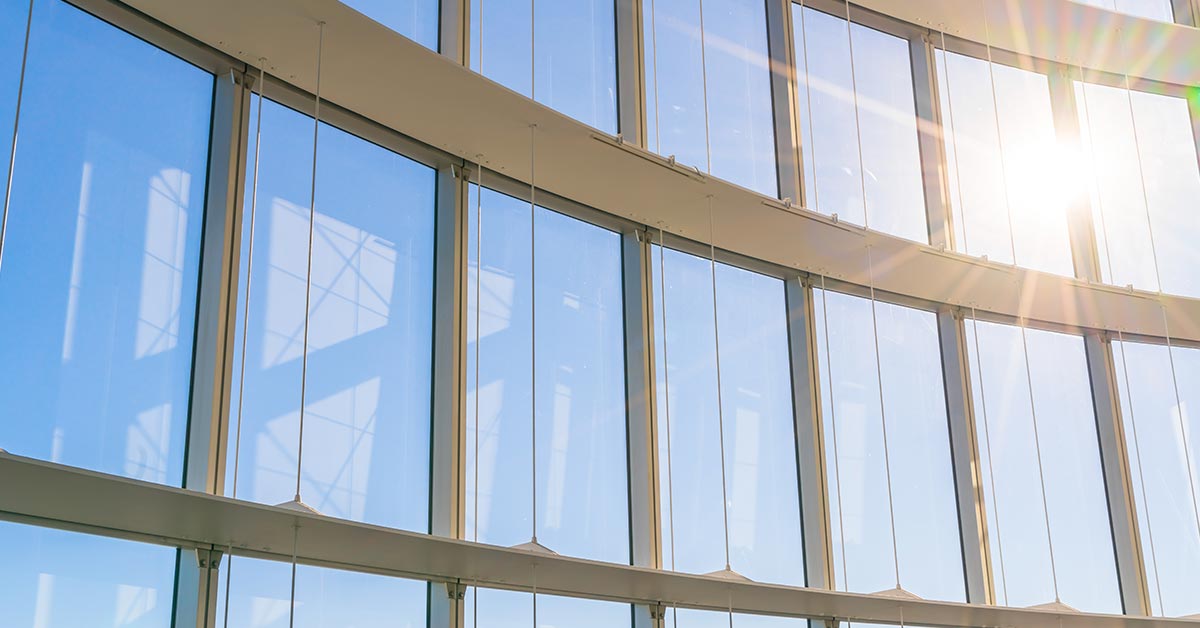If you have decided to replace your window panes and are looking for the most suitable ones for your needs, remember to consider the right coefficients to ensure living comfort and energy saving.
The characteristics to be evaluated in the choice of glass include thermal transmittance, light transmittance and solar factor.
When solar radiation hits a glass pane, the following phenomena occur:
- reflection
- transmission
- absorption
Absorption triggers, at a later stage, the emission of radiation characterized by different wavelengths to solar radiation.
Glass is commonly considered transparent, but in reality it is not completely transparent and acts differently depending on the type of radiation it is hit by.
The way the glazing responds to radiation is measured on two different portions of solar radiation:
- the total spectrum, over which energy coefficients are measured;
- the visible spectrum, on which the optical-luminous coefficients are measured.
Which are the energy coefficients to consider
In order to evaluate the solar performance of a type of glass, it is necessary to know what the energy coefficients are.
Let’s see what they are:
- solar reflection factor: the portion of solar radiation reflected by the glass surface;
- solar transmission factor: the portion of solar radiation transmitted directly from the glass;
- solar absorption factor: the portion of solar radiation absorbed by the glass (and which is later released into the environment);
- solar factor: the ratio between the thermal energy coming from the sun and entering the environment and the energy arriving on the external surface of the glass;
- shading factor: this is a factor used in Anglo-Saxon countries as an alternative to the solar factor. It consists of the ratio between the solar factor of a glass and that generated by 3 mm clear glass. The shading factor is, to simplify matters, the difference between the ratio of the two solar factors;
- thermal transmittance factor: represents the amount of energy that is exchanged through the glass for each difference of one degree C° of temperature between the two faces of the glass. Simply put, it indicates how insulating the glass is.
The importance of the solar factor
From an energy point of view, it is not sufficient to rely on direct or primary radiation transmission to describe the solar gain phenomenon of a glass.
It must, in fact, be considered that the portion of solar energy absorbed by the glass pane is emitted both inwards and outwards, so the value of this secondary or indirect radiation depends on the material characteristics of the glass used.
The total solar energy transmitted through the glass is given by the sum of the solar transmission factor plus the secondary radiation emitted inside, according to the following formula:
gv = τe,v + qi
The solar factor indicates the amount of incoming solar energy and is expressed as a percentage.
The higher the value, the more heat the sun will let in from the glass.
Solar factor and shading
The solar factor is responsible for the total solar energy transmission of the building, so it would be desirable that this value adapts to the needs of the season, insulating from solar radiation during the hot months, and instead letting in the free heat provided by the sun during the cold months.
However, glass does not have this adaptability and excessive solar load could adversely affect the quality of living in a building or the costs of cooling.
For this reason, the solution may be shading systems and devices, in combination with glazing, that can reduce the solar load in summer, without shading in winter.
Choosing solar shading can be an excellent solution, if the characteristics of the glass and environmental conditions are taken into account to maximize light output and energy efficiency.
Conclusions
The topic of this article may seem a bit difficult, but it is an important notion to learn, because the wrong choice of insulating glass can seriously penalize life inside your house.
Right choices at this stage, combined with the installation of solar shading, can make a difference in terms of energy efficiency and therefore costs in the bill.

